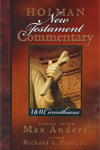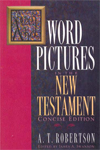|

ANTI-ADDICTION DAY
Sunday, April 28, 2013
Writer for This Unit: Raquel S. Lettsome, Lectionary Team Commentator
The unit you are viewing, Anti-Addiction Day, is a compact unit. This means that it is not a complete commentary of the Scripture(s) selected for this day on the calendar, nor does it have a full, supporting cultural resource and worship unit. Instead, to enliven the imagination of preachers and teachers, we have provided a sermonic outline, songs, suggested books, and suggested articles, links, and videos. For additional information, see Anti-Addiction Day in the archives of the Lectionary for 2009–2012.
I. Description of the Liturgical Moment
Dr. Cheryl Kirk-Duggan wrote in the 2008 African American Lectionary Commentary for Anti-Addiction Day:
Addiction is an illness that manifests as a compulsive, chronic, physical and psychological dependence on, or deep craving for, a substance (e.g., alcohol, drugs, tobacco) or behavioral practice (over-eating, gambling, sex, watching pornography) beyond voluntary control, with psychosocial, environmental, genetic factors. Dependence becomes habitual, often causing one to lose control and engage in more intense addictive behavior, despite that the abuse of substances or practicing such behaviors can jeopardize one’s total health and socio-economic well-being, producing harm, even death. Such prolonged behavior can alter one’s personality, nervous system, and brain functions.
Anti-Addiction is a commitment to honor the body’s sacredness, embrace life one day at a time, and be mindful of our strengths, propensities, and weaknesses, particularly things over which we are powerless, and that we must commit to God’s leading towards transformation, peace, and well-being. Anti-Addiction work is a process where one grows daily, without perfection, blame, or judgment. This process involves one’s entire life, lived in the present, as a spiritual endeavor. Many have found participation in Twelve Step programs (e.g., Alcoholics Anonymous, Ala-non (for friends and families of alcoholics), Overeaters Anonymous, etc.) in concert with their daily faith walk as an opportunity to find acceptance, strength, and hope, towards transformation and a healthier life.1
With this material as a backdrop, we provide a sermonic outline for Anti-Addiction Sunday.
II. Anti-Addiction Day: Sermonic Outline
A. Sermonic Focus Text: 1 Corinthians 6:12, 20 (New Revised Standard Version)
(v. 12) “All things are lawful for me,” but not all things are beneficial. “All things are lawful for me,” but I will not be dominated by anything.
(v. 20) for you were bought with a price; therefore glorify God in your body.
B. Possible Titles
i. Only God Can Afford You
ii. “Can” Does Not Equal “Should”
iii. When Lawful Becomes Lethal
C. Points of Exegetical Inquiry
In any text there can be several words or phrases that require significant exegetical inquiry. Verse 12 is the verse I selected for particular exegetical inquiry. It says, “All things are lawful for me.” The Corinthians used this phrase to assert that their freedom in Christ gave them freedom to do whatever they pleased. However, Paul counters this notion by (1) reminding them that the ability to do something or even their legal right to do it does not make it beneficial, and (2) even when something is legal, or not forbidden to us, we must be careful not to allow it to hold us captive.
III. Introduction
For many of us, an Anti-Addiction Day is commendable but not necessarily relevant to us personally. Indeed, we are aware of the staggering drug statistics in the African American community and the devastation it has caused families and loved ones. But for those of us who regularly frequent the pew or the pulpit, we may not see addiction as a major problem. We often think this way because the word “addiction” is automatically equated with the overuse or uncontrolled use of drugs or alcohol. If narcotics and/or alcohol is not something we use or abuse, we may be tempted to tune this message out or perhaps listen to it with the intention of later telling someone we know (who actually needs it), “You should have been in church this morning. The preacher had a word for you!”
And yet, many of us sitting here today are bound, imprisoned by chains and bars that we fail to see. What holds us captive is not illegal. It may not even be immoral. The problem is that it is addictive. We have become dependent on it to our own detriment. Maybe that is why we do not recognize the extent of our bondage—what is holding us captive is actually meant to help us, and what is meant to entertain us has trapped us.
Perhaps we need to consider that for many of us, our captor is not the bottle but our Blackberry; it is not liquor but our laptops; not fornication but a smart phone; not crack but a computer game; not taking drugs but text messages and tablets. We have slipped into a subtle form of idolatry and our god is the Internet and all the technology that it has spawned!
A 2011 study on technology usage reports:
More than half of Americans would rather give up chocolate, alcohol and caffeine for a week before parting temporarily with their phones, according to a recent survey by technology firm TeleNav.
One-third would give up sex, 22% would give up their toothbrushes (versus 40% of iPhone users, who evidently love their phone more than clean teeth) and 21% would rather go shoeless before separating from a mobile phone. Sixty-six percent sleep with their smartphones by their side.
Our addiction is so severe that people described going 24 hours without Internet akin to quitting an alcohol or cigarette habit, according to a report from British company Intersperience.
About 40% of those surveyed reported feeling lonely without the Internet, and 53% felt upset at being deprived. One person described unplugging to “having my hand chopped off.”2
The New York Times reports that “the Diagnostic and Statistical Manual of Mental Disorders, widely viewed as the authority on mental illnesses, plans to include “Internet use disorder” in its appendix.”3 I wonder if anyone knows that our addiction to the Internet is just a symptom of a much deeper problem—our need to connect, our need to fill voids. Perhaps we are just very, very lonely people in search of a touch.
To complicate matters further, the Internet has become a “gateway drug” of sorts. It has opened the door to fuel our baser inclinations. The rise of Internet use corresponds to a rise in the use of pornographic material. A 2006 study reported that every second $3,075.64 is being spent on pornography. Every second 28,258 Internet users are viewing pornography.4 In 2008, BBC noted a dramatic increase in sex addiction, with the “obsessive use of internet pornography” as the “most common form.”5
Our use of technology is lawful, it is legal, but our utilization is not always beneficial. In many cases, it has become lethal. It is killing relationships and destroying intimacy by offering us superficial connections with “friends.” It is killing productivity and our ability to unplug and rest. It is taking lives because people are so consumed by texting, e-mails, and phone calls that we are dying on the highways. Technology was supposed to serve us, but we have become slaves to it.
And so, 2000 years later, Paul’s words to the people in Corinth come to us today. He reminds us that we are not to be lured into thinking that legality is our only consideration when evaluating our behavior. Lawful behaviors can become lethal ones. As believers in the Lord Jesus Christ, we cannot even allow our freedom in Christ to become a justification for self-indulgence that does not honor God or ourselves. When this happens, we become slaves to a master that cannot afford us. Therefore, Paul causes us to consider three Moves/Points.
IV. Moves/Points
Move/Point One – We must consider whether or not it (our use of technology) is beneficial. Lawful is a starting point, not the sole determining factor governing our behavior.
a. Lawful does not mean less harmful. Lawful things can be just as addictive as illegal and immoral ones.
b. Just because we can do something does not mean we ought to do it.
c. Consider the context of our actions—is it the right time? in the right place? with the right person/people? under the right circumstances?
Move/Point Two – We must consider whether or not it (our use of technology) has us bound. We are not to be dominated by anything or anyone.
a. Are we exercising self-control, or is it controlling us?
b. Consider the consistency of our actions: Are the bells, chirps, tweets, vibrations, and LED flashes like itches we must scratch immediately in order to relieve the discomfort?
c. Are we more comfortable with spending a day without prayer, reading the Word, or worship than we are spending a day without access to our cell phone/tablet/computer?
Move/Point Three – Remember that there is a higher bidder.
a. It is human nature to serve some thing or someone.
b. However, we do not have to serve just anything or anyone. We should serve the One who gave it all for us.
c. Through Jesus, we can be free from anything or anyone that holds us captive because Jesus has paid the ultimate price for our redemption.
V. Celebration
The Good News is that we do not have to be held captive. If we are bound to anything or anyone that is not beneficial, there is a higher bidder. There is Someone who has paid the ultimate price for us; redeemed us by the blood of his only begotten Son. He is the only One who can afford us. To serve, to be enslaved by anything or anyone else is selling ourselves short. Jesus paid it all. All to him, and only to him do we owe…
VI. Illustration(s)
1. This illustration is taken from the Encyclopedia of 7700 Illustrations:
200 Years as Average Civilization
What is past is prologue. History repeats itself as time marches on. A study of history shows that the great civilizations of the world have averaged about 200 years. The people of the world have followed this timetable.
The people go:
From slavery to spiritual faith
From spiritual faith to courage
From courage to liberty
From liberty to abundance
From abundance to selfishness
From selfishness to apathy
From apathy to dependence
From dependence back to slavery.6
2. This illustration is taken from the movie Pretty Woman (1998):
One night Vivian Ward (Julia Roberts) explains to Edward (Richard Gere), the multi-millionaire john who picked her up off the streets in LA, that she left home when she was in the 11th grade. He mother used to call her a bum magnet and told her that if there was a bum within a 50-mile radius she was completely attracted to him. That’s how she ended up in LA, following bum #3, and wound up with no money, friends, or bum. She was too ashamed to go home and then became a prostitute.
Edward responds, “But you could be so much more.”
Vivian says, “If people put you down enough, you believe them.”
And believe them she did. When Edward wanted her to spend the week and not just the night, she told him it would cost $4000. He countered with $2000. She said, “$3000,” and they had a deal.
As he leaves for work, she says, “I would have stayed for $2000.”
He tells her, “I would have paid $4000!”
So often we end up bound to people or things because we don’t know what we are worth. We do not realize that there is One who paid the ultimate price for us; One who didn’t look for a discount or sale or decide we were not the worth the price: “for you were bought with a price; therefore glorify God in your body.”
3. A man is rich in proportion to the number of things he can afford to let alone.
See the Sermon Illustrations section of The African American Lectionary for additional illustrations that you may wish to use in presenting a sermon for this moment on the liturgical calendar.
VII. Sounds and Sights in This Passage
| Sounds: |
The sounds of chains breaking; squeaking of prison doors opening; clink of coins being paid for a ransom; shouts of freedom; and
|
| Sights: |
The radiance of God’s glory; a person giving praise to God. |
VIII. Songs to Accompany This Sermon
A. Well-known Song(s)
- Changed. By Walter Hawkins
- Serve You Only. By Fred Hammond, Tiffany Palmer, JoAnn Rosario, Tommie Walker, and Joey Woolfalk
- Jesus Paid It All. Traditional
B. Modern Song(s) (Written between 2005–2012)
- We Have Overcome. By Israel Houghton
- I Give Myself Away. By Sam Hinn and William McDowell
- Best Days Yet. By Donald Lawrence
C. Spiritual(s)
- Hush! Hush! My Soul. By Rev. S. S. Morris. Tune by Edward C. Deas
- God Weeps. By Shirley Erena Murray. Music by Mark A. Miller
- It’s Alright. Negro Spiritual. Arr. by Bill Cummings
- Give Me a Clean Heart. By Margaret Pleasant Douroux. Arr. by Albert Dennis Tessier
D. Liturgical Dance Music
- No One Else. By Kurt Carr
- I Know You Hear Me. By James Johnson
E. Song(s) for the Period of Prayer
- God Held Me Together. By Cheryl Fortune, James Fortune, and Lucius B. Hoskins
- Survive. By Asaleana Elliot, Gerald Haddon, Chris Johnson, Derrick “Swol” Ray, and Aaron Sledge
F. Sermonic Selection(s)
- In the Hollow of Your Hand. Traditional
- Does Jesus Care? By Kenneth S. Morris
G. Benediction Song(s)
- You Do Great Things. By Michael Bethany, Fred Hammond, Pam Kenyon, Bobby Sparks, and Ericka R. Warren
- God Is Working. By Carol Cymbala
IX. Videos, Audio, and/or Interactive Media
X. Books to Assist in Preparing Sermons, Bible Studies, and/or Worship Services Related to Anti-Addiction Day
 |
Pratt, R.L., Jr. Holman New Testament Commentary: I & II Corinthians. Nashville, TN: Broadman & Holman Publishers, 2000.
|
 |
Jamieson, R., Fausset, A.R., & Brown, D. Commentary: Critical and Explanatory on the Whole Bible (1 Co 6:12). Oak Harbor, WA: Logos Research Systems, Inc., 1997.
|
 |
Robertson, A. T. Word Pictures in the New Testament (1 Co 6:12). Nashville, TN: Broadman Press, 1933. (Updated version available on Kindle)
|
XI. Links to Helpful Websites for Anti-Addiction Day
XII. Notes for Select Songs
A. Well-known Song(s)
- Changed. By Walter Hawkins
Location:
Walter Hawkins Treasury. Nashville, TN: Light Records, 1986.
- Serve You Only. By Fred Hammond, Tiffany Palmer, JoAnn Rosario, Tommie Walker, and Joey Woolfalk
Location:
Rosario, JoAnn. More, More, More. New York, NY: Verity, 2002.
- Jesus Paid It All. Traditional
Location:
Franklin, Kirk & the Family. Watcha Lookin’ 4. Inglewood, CA: Gospocentric, 1995.
B. Modern Song(s) (Written between 2005–2012)
- We Have Overcome. By Israel Houghton
Location:
Houghton, Israel & New Breed. A Deeper Level: Live. New York, NY:
Columbia, 2007.
- I Give Myself Away. By Sam Hinn and William McDowell
Location:
McDowell, William. As We Worship Live. New York, NY: Koch Records, 2009.
- Best Days Yet. By Donald Lawrence
Location:
Morton, Bishop Paul S. Best Days Yet. Nashville, TN: Light Records, 2012.
C. Spiritual(s)
- Hush! Hush! My Soul. By Rev. S. S. Morris. Tune by Edward C. Deas
Location:
African American Heritage Hymnal. Chicago, IL: GIA Publications, 2001. #450
- God Weeps. By Shirley Erena Murray. Music by Mark A. Miller
Location:
Zion Still Sings for Every Generation. Nashville, TN: Abingdon Press, 2007. #68
- It’s Alright. Negro Spiritual. Arr. by Bill Cummings
Location:
African American Heritage Hymnal. #526
- Give Me a Clean Heart. By Margaret Pleasant Douroux. Arr. by Albert Dennis Tessier
Location:
Zion Still Sings. #116
D. Liturgical Dance Music
- No One Else. By Kurt Carr
Location:
Carr, Kurt & the Kurt Carr Singers. No One Else. New York, NY: Zomba, 1997.
- I Know You Hear Me. By James Johnson
Location:
Sneed, Troy. All Is Well. Middleburg, FL: Emtro Gospel, 2012.
E. Song(s) for the Period of Prayer
- God Held Me Together. By Cheryl Fortune, James Fortune, and Lucius B. Hoskins
Location:
Cortez, Zacardi. The Introduction. New York, NY: Worldwide Music, 2012.
- Survive. By Asaleana Elliot, Gerald Haddon, Chris Johnson, Derrick “Swol” Ray, and Aaron Sledge
Location:
Mary Mary. Something Big. New York, NY: Columbia, 2011.
F. Sermonic Selection(s)
- In the Hollow of Your Hand. Traditional
Location:
Johnson, Andrew. Sending a Message to All Drug Dealers and Pushers. Shreveport, LA: Paula Records, 1994.
- Does Jesus Care? By Kenneth S. Morris
Location:
The Soul Stirrers. Kings of the Gospel Highway. Newton, NJ: Shanachie Records, 2000.
G. Benediction Song(s)
- You Do Great Things. By Michael Bethany, Fred Hammond, Pam Kenyon, Bobby Sparks, and Ericka R. Warren
Location:
Hammond, Fred. Life in the Word. New York, NY: Fred Hammond Family Entertainment, 2010.
- God Is Working. By Carol Cymbala
Location:
The Brooklyn Tabernacle Choir. God Is Working: Live. New York, NY: Sony, 2000.
Notes
1. For further information, consult Alcoholics Anonymous: www.aa.org. Trevor Hudson’s One Day at a Time: Discovering the Freedom of 12-Step Spirituality (Nashville, TN: Upper Room Books, 2007) provides tools for facing temptations and struggles to reclaim self-worth and renewal.
2. “Our addiction to technology trumps caffeine, chocolate and alcohol.” Online location: http://latimesblogs.latimes.com/technology/2011/08/technology-addiction-chocolate-caffeine.html.
3. Online location: http://www.nytimes.com/2012/07/24/technology/silicon-valley-worries-about-addiction-to-devices.html?pagewanted=all&_r=0.
4. Online location: http://internet-filter-review.toptenreviews.com/internet-pornography-statistics.html.
5. Online location: http://news.bbc.co.uk/2/hi/uk_news/7180401.stm.
6. Tan, P. L. Encyclopedia of 7700 Illustrations: Signs of the Times. Garland, TX: Bible Communications, Inc., 1996.
|

